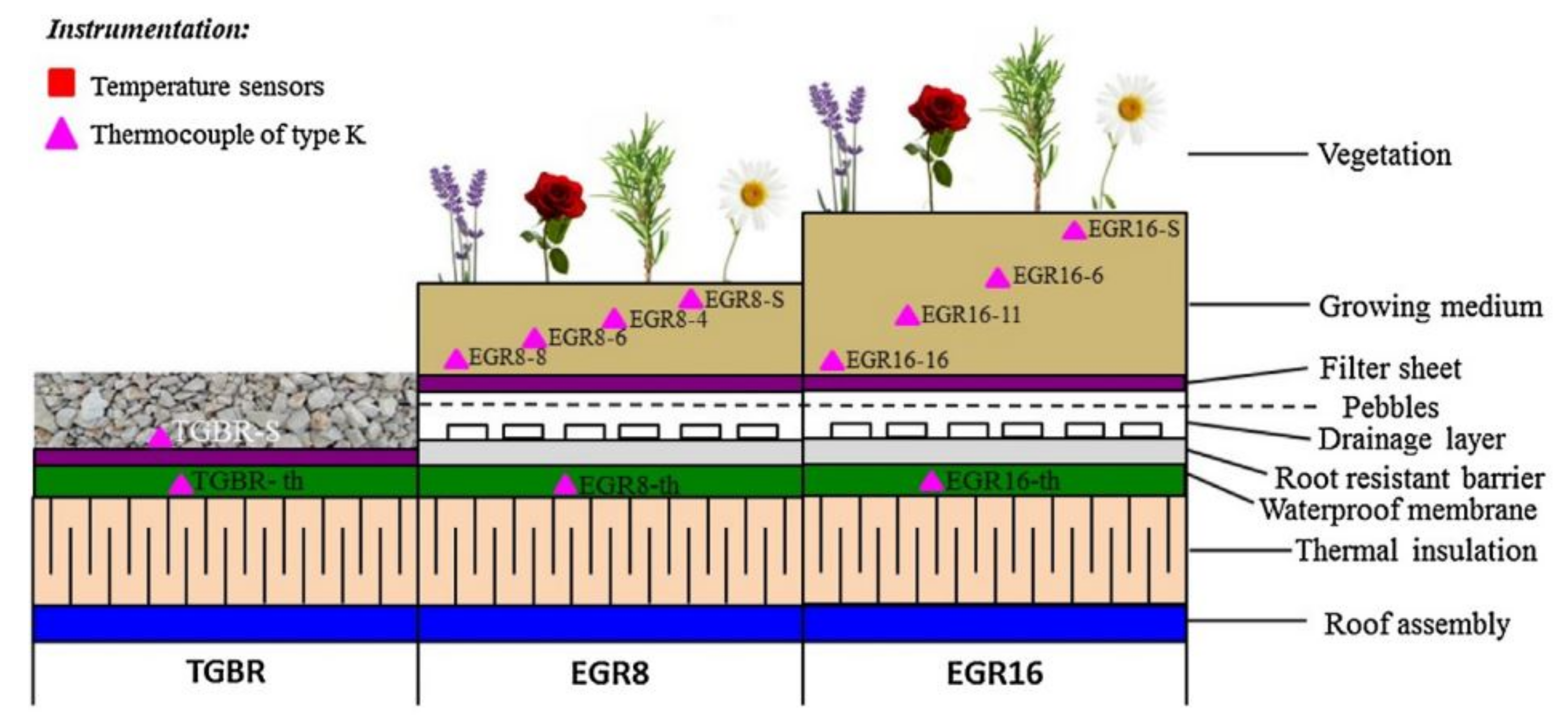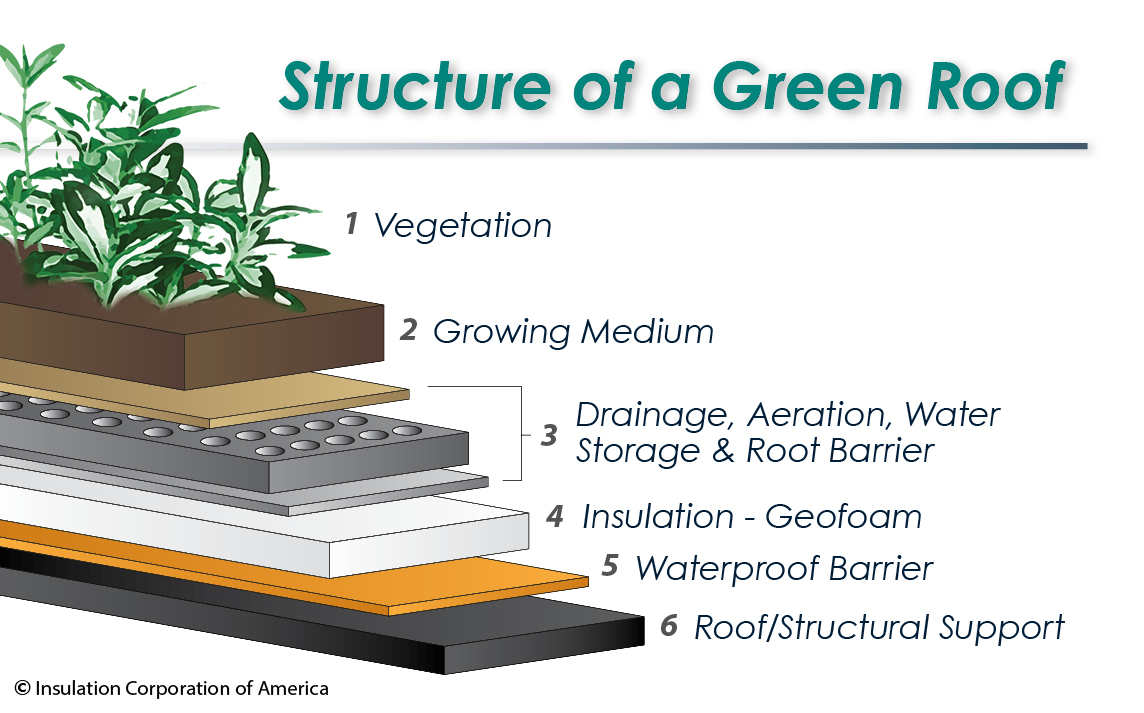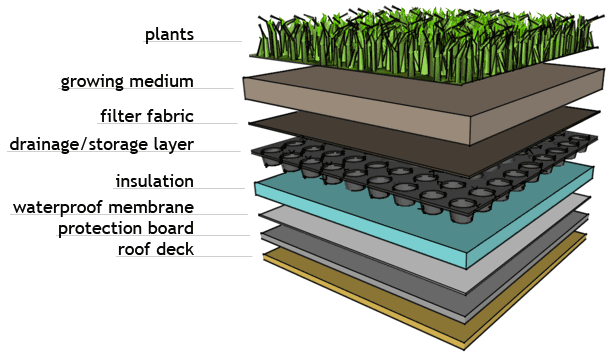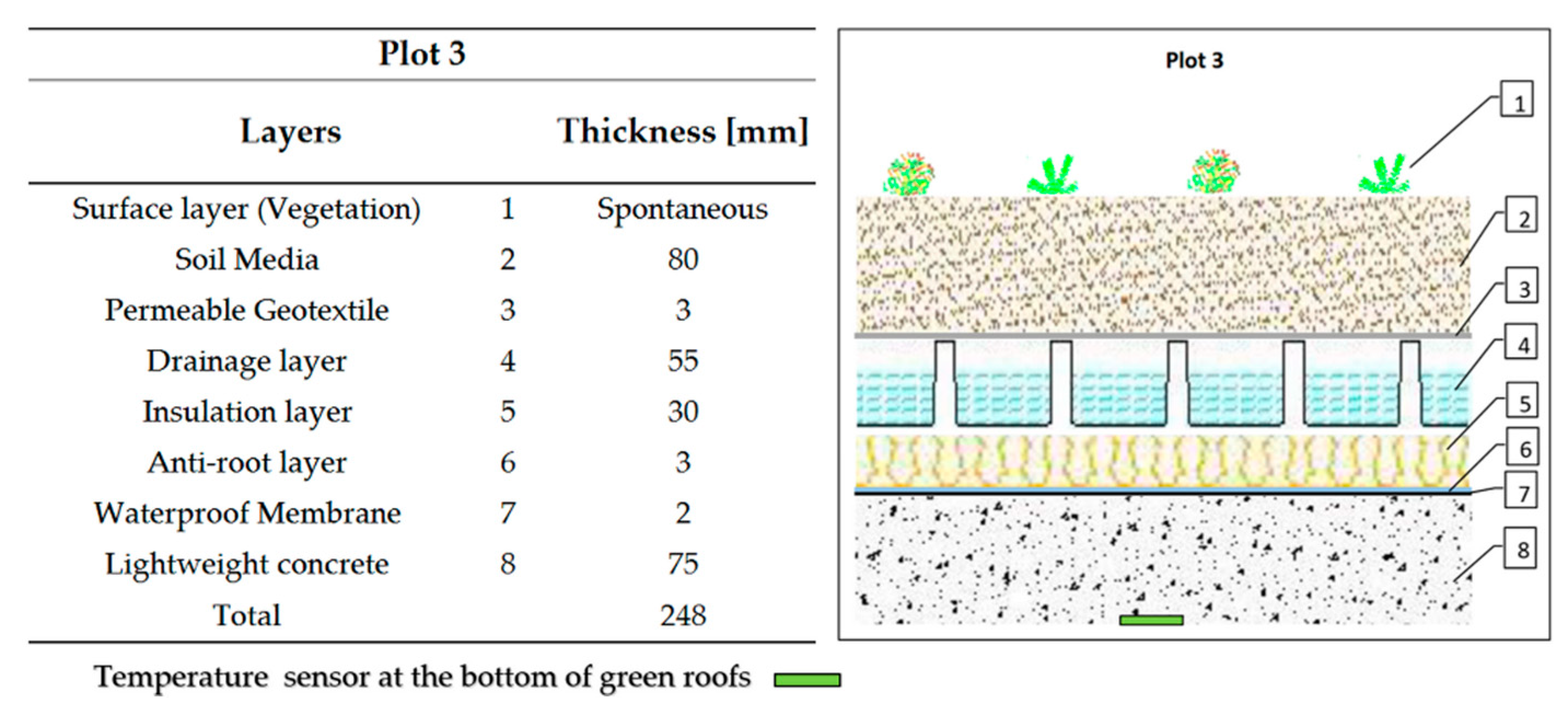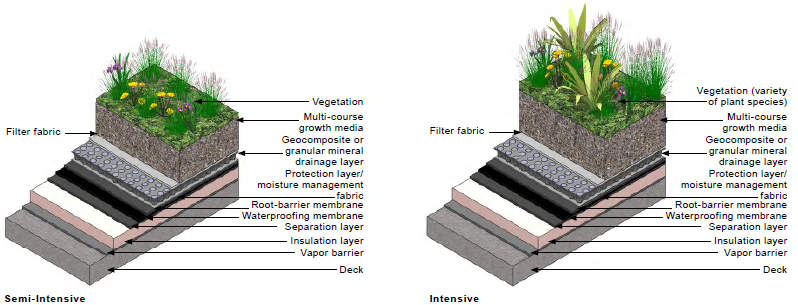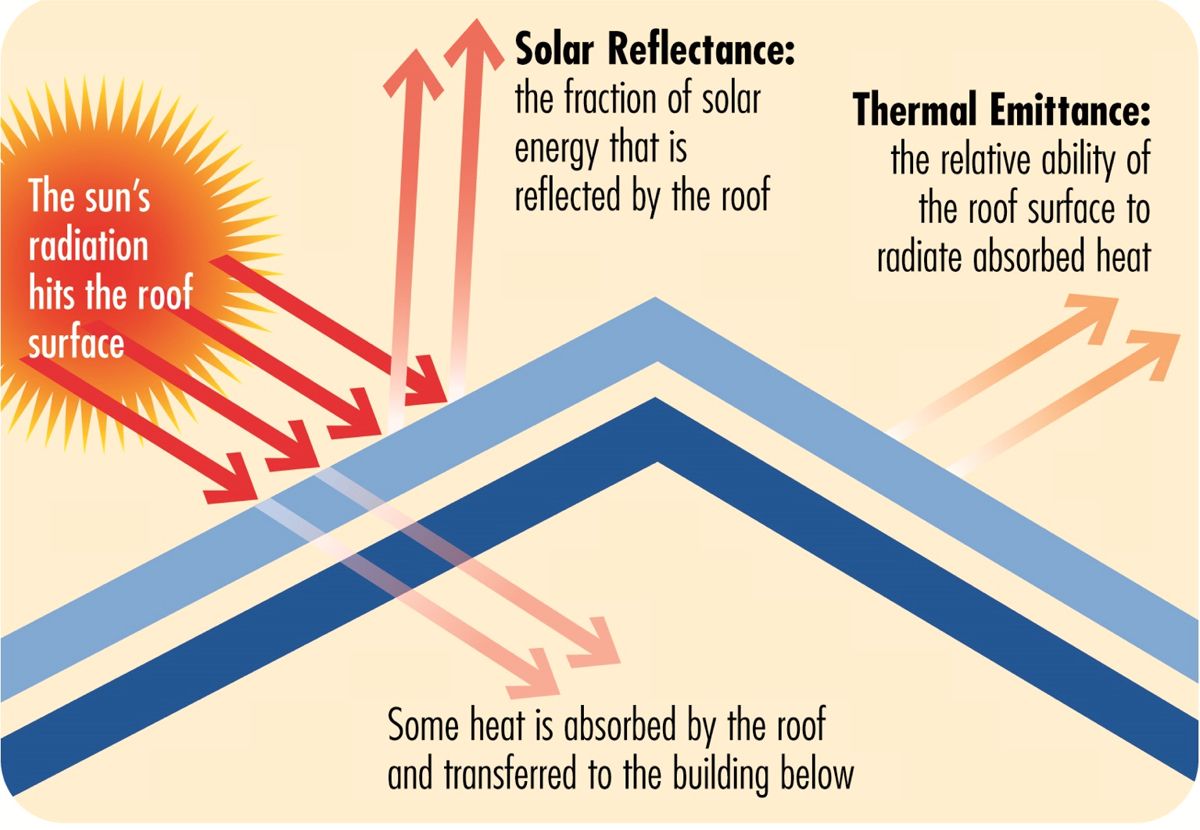The basic anatomy of a green roof consists of vegetation growing medium filter membrane drainage layer waterproof root repellant layer roofing membrane support for plantings above thermal insulation vapor control layer and structural roof support.
Green roof insulation properties.
They can reduce peak energy demand by lowering a building s cooling costs in the summer months and heating costs in the winter months.
Read on to learn about 10 of them.
More green roofs and fewer dark colored roofs equal a cooler city.
Sound waves are absorbed and reflected.
Due to their relatively large surface mass density low stiffness and pronounced damping properties green roofs increase the acoustic insulation on top of the basic roof.
So you can also save on your heating bills in the winter.
Especially their performance in the low frequency range could be interesting.
In addition to thermal insulation a green roof also has a sound insulating effect.
Green roofs are great insulators.
Reducing the urban heat island effect.
The combination of substrate plants and the embedded air in the green roof system provide good sound insulation.
What are some of your options when it comes to roofs.
Since most of the green roof heat management happens right at the surface in the vegetation and the planting media any additional energy conservation measures that go underneath the drain layer should supplement the vegetation media heat management not the other way around.
Advice should be sought from a building energy consultant to establish the value of additional insulation considering the insulating properties of the green roof assembly substrate.
However a green roof with grasses or herbs contributes more to heat regulation because the substrate layer is thicker than for a sedum roof.
Further if the roofing material doesn t have insulating properties it can create a secondary environmental issue by requiring the inhabitants of the building to crank up the climate control.
While this can be positioned below the roof deck installation above the waterproofing known as an inverted green roof is preferred as it further protects the membrane from condensation and physical damage.
Does a green roof system have to include insulation it depends.






